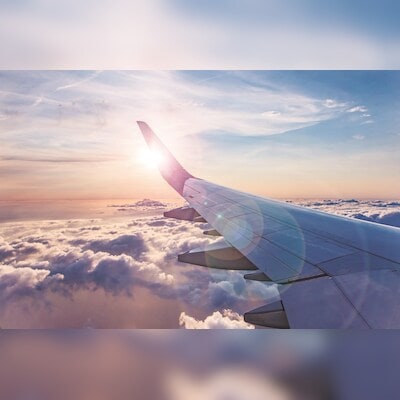The regulator noted that the lessor should not have an active significant safety issue under the ICAO USOAP. | Representative image
The Directorate General of Civil Aviation (DGCA) on Thursday proposed stricter norms for monitoring wet-leased aircraft operated by Indian airlines.
With a significant number of aircraft grounded due to engine and supply chain issues, domestic airlines are using more leased aircraft as a short-term measure to meet growing air traffic demand.
The regulator has released a draft for public consultation on the revised Civil Aviation Requirements (CAR) for wet/wet lease operations by Indian operators to strengthen the regulatory framework for safety oversight of such operations.
Wet leasing of an aircraft by an Indian airline involves leasing a foreign aircraft, along with crew, maintenance and insurance. The aircraft is also under the operational control of the foreign operator (lessor) and subject to the regulatory requirements of the relevant foreign civil aviation authority.
Safety oversight of such operations is also the responsibility of the relevant foreign authority, and the role of Indian airlines is limited to the commercial aspects of the operations.
“The enhanced regulatory framework and changes proposed in the draft CAR include restricting wet leasing only to countries having a credible safety oversight system, as well as standardizing DGCA oversight of such operations,” the DGCA said in a statement on Thursday.
Among the proposed changes is that an aircraft may be wet leased only to ICAO contracting states that have an average effective implementation score of 80 percent or more (with a minimum of 70 percent in each area) in the areas of personnel licensing, airworthiness and operations.
This should be in line with the latest results of the ICAO Universal Safety Oversight Audit Programme (USOAP).
The regulator noted that the lessor should not have an active significant safety issue under ICAO’s USOAP.
Other proposed changes include provisions to ensure notification of safety occurrences and provision of flight data and other necessary safety information to the DGCA.
“The Indian operator shall ensure compliance with the requirement of breathalyser testing of the foreign crew/personnel involved in the operation, in accordance with the policy and procedures approved by the DGCA for its own aircraft operations,” the draft CAR said.
In addition, DGCA inspectors should have access to all aircraft records to conduct physical inspection of the aircraft at any time during such operations.
“With the enhanced regulatory framework and standardised mechanism for monitoring such operations by the DGCA, the period for such wet leasing operations has been increased from the existing 3 months (extendable by another 3 months) to 6 months (extendable by another 6 months),” the statement said.
(Only the headline and image of this report may have been reworked by Business Standard staff; the rest of the content is auto-generated from a syndicated feed.)
First published: September 12, 2024 | 11:28 PM IS
Disclaimer:
The information contained in this post is for general information purposes only. We make no representations or warranties of any kind, express or implied, about the completeness, accuracy, reliability, suitability or availability with respect to the website or the information, products, services, or related graphics contained on the post for any purpose.
We respect the intellectual property rights of content creators. If you are the owner of any material featured on our website and have concerns about its use, please contact us. We are committed to addressing any copyright issues promptly and will remove any material within 2 days of receiving a request from the rightful owner.

